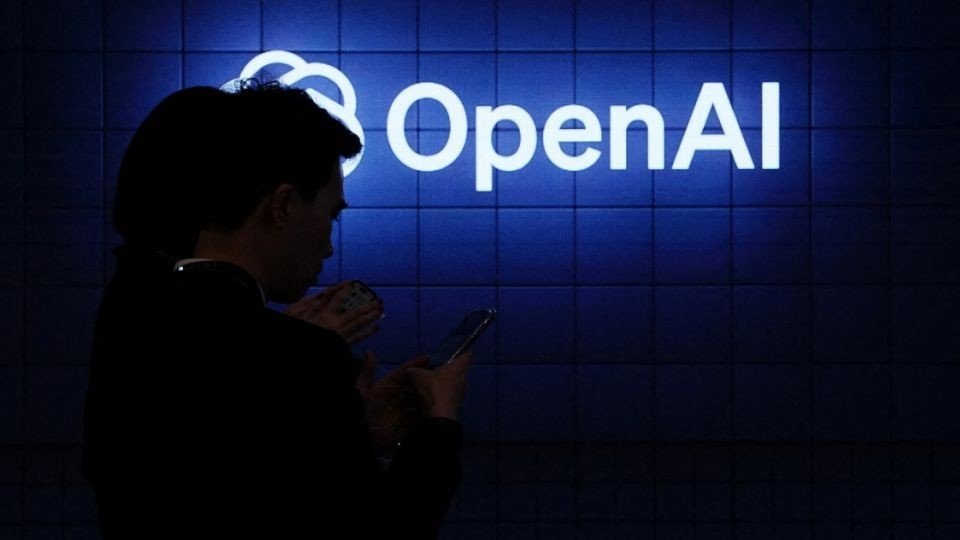Dr. Khulood Almani, Founder & CEO of HKB Tech and a prominent AI thought leader, is a driving force in Saudi Arabia’s technological landscape. Formerly a professor at King Saud University, Dr. Almani is also the UN Ambassador for Women Empowerment, Peace, and Humanity, advocating for economic inclusivity. In addition to her role at HKB Tech—an innovation arm of the esteemed Bin Dayel Group—she serves as the Senator for Saudi Arabia at the G20-World Business Angels Investment Forum (WBAF) and is the Country Chair of the G100-Women Economic Forum. She is also a co-founder of Forward Angel Investment, which supports digital entrepreneurs globally.
With a strong vision to shape the next generation of digital leaders, Dr. Almani founded HKB Tech to advance artificial intelligence (AI) and digital transformation in the Kingdom. Her commitment ensures Saudi Arabia’s position at the forefront of technological collaboration, innovation, and sustainability. Through HKB Tech, she aims to contribute meaningfully to Saudi Arabia’s Vision 2030 by nurturing AI startups and SMEs, helping the Kingdom establish itself as a global technology leader.
AI and the Role of Startups in Saudi Arabia’s Technological Future
AI has become a cornerstone of Saudi Arabia’s ambition to lead in technology and innovation. The Saudi government has committed $100 billion to develop a comprehensive AI ecosystem, investing in AI startups, data centers, and fostering strategic partnerships. AI’s potential to contribute over $135 billion to the country’s GDP by 2030 underscores the importance of AI startups and small and medium-sized enterprises (SMEs) in driving this transformation.
At the heart of this effort is HKB Tech’s establishment of the Saudi AI Centre of Excellence (CoE), a hub for R&D and patented AI technologies. The CoE is designed to shape the future of AI, contributing to the global AI landscape. Strategic partnerships with industry giants like Google, AWS, and NVIDIA further strengthen access to the cutting-edge technologies essential for successful AI projects.
HKB Tech’s participation in NVIDIA’s AI Inception Program highlights the company’s critical role in AI development, positioning it alongside major players like OpenAI. Dr. Almani stresses the importance of localizing technology and talent to foster sustainable entrepreneurship, knowledge transfer, and the development of AI solutions that address market needs while adhering to sustainability principles.
Challenges in Sustainable AI Development
Dr. Almani acknowledges the challenges in AI development, particularly regarding sustainability, ethics, and data privacy. She advocates for frameworks that promote AI-driven entrepreneurship while addressing these issues. These include an AI sustainability framework, AI regulatory standards, and an ethical AI framework aligned with cultural values. As sustainability becomes central to national strategies and the UN 2030 Sustainable Development Goals, responsible tech development is essential.
While AI promises economic benefits, it raises concerns about ethics, data privacy, and security. There is a pressing need for a cohesive, centralized AI regulatory framework that ensures transparency, explainability, and ethical practices, particularly in sectors like healthcare and finance. Dr. Almani suggests integrating best practices and developing region-specific approaches to preserve ethical integrity through explainable AI (XAI).
Building Technological and Cultural Readiness
Investments in scalable AI infrastructure, such as energy-efficient data centers and hybrid quantum-classical computing, are vital for technological readiness. Initiatives involving global tech giants like Google and IBM, along with local collaborations like Aramco-Pasqal, represent significant advancements in this direction.
Addressing resistance to AI adoption is also crucial, particularly concerns about job displacement. The World Economic Forum predicts substantial net job creation as a result of AI, emphasizing the need for effective upskilling programs and global collaboration in AI education.
Cultural readiness is equally critical. Transparent communication, inclusive education, and public awareness campaigns will help foster acceptance of AI technologies and bridge the talent gap in the region.
Towards a Global AI Leader
To establish the Middle East as a global AI leader, Dr. Almani emphasizes the importance of developing regional AI regulatory frameworks that reflect ethical, cultural, and societal values. These frameworks should support AI education, promote collaborative efforts to bridge the talent gap, and create regulatory sandboxes for innovation. By addressing these critical elements, Saudi Arabia can lead the way in sustainable AI transformation, ensuring a resilient and prosperous future.















